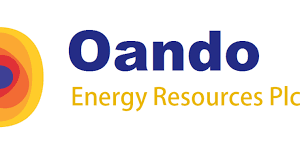Given insights into the successful journey of indigenous oil companies in Nigeria, Oando Energy Resources has highlighted reasons why collaboration is key among the indigenous companies in the oil and gas industry.
Speaking at the at the Commonwealth Businesswomen Forum, in the just concluded Nigeria International Petroleum Summit (NIPS), held in Abuja , the company said a good example of result that has been achieved through collaborations among the operators was the development of the Omogini pipeline infrastructure under a special purpose vehicle made up of MidWestern and Niger Joint venture where Oando serves as technical partner.
According to the general manger, Commercials , Bambo Ibidapo Obe who spoke on what is common to both marginal fields and modular refineries noted that the 12 inch diameter and 51 kilometre long Omogini Pipeline which was conceived, developed and delivered in 2014 came into existence through collaborations among stakeholders in the oil and gas industry.
He said the infrastructure transport stabilized crude oil from producer’s field, OML 56 and then connected to Shell pipeline and further connected to forcadoes oil export terminal.
He said the infrastructure has over the years serve as alternative route to Agip oil export hub where intakes in the past hinders marginal field operators from producing at full potentials.
“From January 2015 to date, the Omogini line which has capacity of 45,000 barrels per day, has successfully moved 18million barrels of crude oil, serving and helping to ensure production evacuation uptime in the field. This serves at least four companies namely, Energier JV, PlatformPetroleum, Midwestern and Pillar Oil,”he said.
He described the oil and gas industry as been inextricably linked to the Nigerian economic well being, being the mainstay of the country’s economy.
“Without a doubt, all the various phases of the industry have gone through various stages of evolution. From being dominated by international oil companies to a more diverse landscape of both international and local players to the development and implementation of both legal, fiscal framework to owe resource exploitation as well as recalling government policy and regulatory frameworks, just to name a few.”
The Oando chief said for every one of these vertical numerous opportunities have emerged, stating further that in recent decades there have been increased calls and participation for indigenous players in the industry.
Emphasising what is common to both modular refineries and marginal field, he said, in an industry such as the oil and gas with significant high entry cost, conversations around skills, process and operations are what is available all the time, these are common to both marginal fields and modular refineries.
The drive for local participation led to the Federal Government’s marginal field programme. By the definition of the Petroleum Amendment Act, according to him, a field shall be consider as marginal field if discovery has been made, and the field remains unattended to up to a period of 10 years from the date of discovery and the field is subsequently declared as marginal field by the government of Nigeria.
He stated that marginal field provides unique opportunities to achieve a concurrent dual objectives of increasing corporate participation and an increase in national hydrocarbon production levels and reserves.
In the same vein, he said, modular refinery present a scale of downstream activities that is more accessible to small and medium size players and is meant for Indigenous firms for similar reasons.
The linkage between marginal fields and modular refineries, he said, is in the supply of crude oil produced by the marginal fields which is the primary feed stock for the modular refineries. Hence the need for collaboration between the modular refineries and the marginal fields to guaranty long term supply of crude.
The Federal Government favourable posture towards modular refineries is underscore, for example, by the Nigerian Content Development and Monitoring Board ‘s(NCDMB) acquisition of a 30 % stake in WalterSmith Modular Refinery Project.
The Oando chief said however that there is work that has to be done in terms of regulatory consideration towards incentivizing modular refinery investment in Nigeria.
He said there is need for synergy between the modular Refineries and Marginal fields’ operators.
“Although the oil production of marginal fields have increased, it is still very shy of the 6 % mark, Of the marginal fields licenses awarded today over 60 % of them are yet to reach commercial production.”
Some of the challenges being faced by marginal fields licensees are either production ramp up, financial and evacuation constraints, community agitations and assets vandalisation just to mention a few.
He said the successful delivery of this project is testament not only to the technical and financial competences of the indigenous companies but also the power of collaboration which everybody must tap into.
He said women have also contribute in no small measure to the successes of Oando Energy Resources as they make up 40percent of the work force and also occupy strategic leadership position in organization.

























